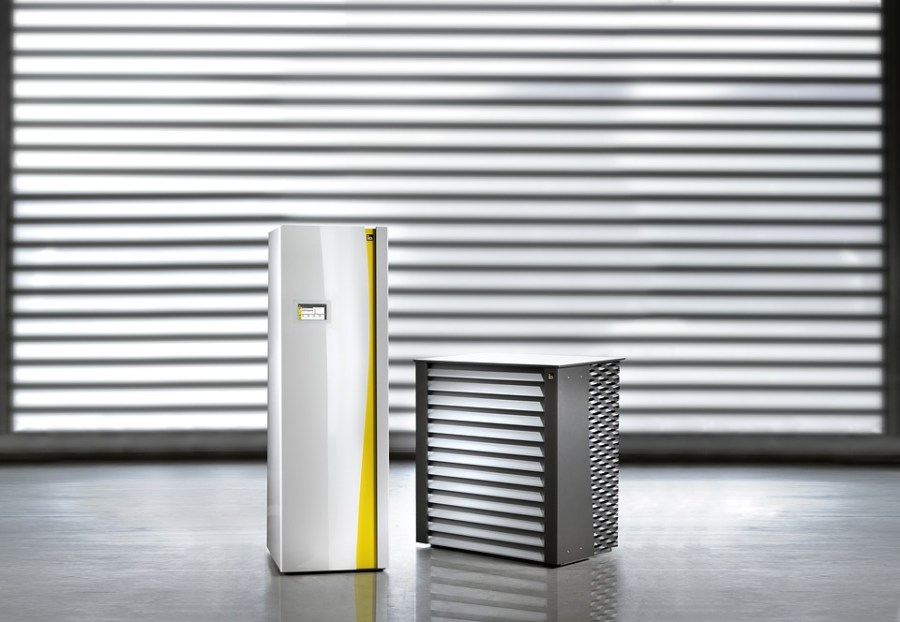How to Choose the Best Heat Pump for Your Home

Selecting the right heat pump for your home means that you can save energy and reduce the cost of heating or cooling your home. In moderate climates, heat pumps are good alternatives to air conditioners or furnaces due to their energy efficiency. They’re efficient because they move energy rather than generating it.
With some research and brand comparison, you can find the heat pump that works for both your residence and for your budget. A heating and cooling professional can also help you determine the right size and type for your climate and home. Some of the leading heat pump brands are Carrier, Goodman, Air Source, Coleman and Bryant.
How Heat Pumps Work
A heat pump is an all-in-one heating and air conditioning system, so it is effective year-round in locations where the climate is not extreme. It works by moving heat from a warm space into a cool space or by moving cool air into a warm space. In colder weather, the unit extracts heat from outdoors into your cool home. In warmer weather, the process is reversed and the unit collects hot air from your warm home and moves it outside.
In general, heat pumps are most effective in warmer climates, when you want mostly cool air, with occasional need for warmer air. If you live in a climate where the temperature gets down to 10-25 degrees Fahrenheit, the heat pump won’t work efficiently and you’ll need some form of heat supplement, such as a gas furnace.
Find the Most Efficient Heat Pump
There are three types of heat pumps: air source, split ductless and geothermal. Each varies in its efficiency, but the U.S. Department of Energy estimates that heat pumps reduce energy use by 30 to 60 percent.
For the first two types of heat pumps, cooling efficiency is measured by SEER (Seasonal Energy Efficiency Ratio) and warming efficiency is measured in HSPF (Heating Seasonal Performance Factor). The American Council for an Energy-Efficient Economy recommends purchasing heat pumps that are at least 15 SEER and 8.5 HSPF. The most efficient Energy Star-rated heat pumps are 18 to 27.5 SEER and 8.5 to 12.5 HSPF.
Geothermal heat pump cooling efficiency is rated via EER (Energy Efficiency Ratio), with heating efficiency measured in COP (Coefficient of Performance). Federal EER minimums range from 17.1 to 21.1 and COP minimums are 3.1 to 4.1.
Costs of Installing Heat Pumps
Systems that have the highest ratings cost the most, and all systems vary depending on the size of your home and other factors. Consumer Reports estimates the cost of installing a geothermal system in a 2,500 square-foot home at $20,000 to $25,000. This is several times the repair or installation cost of other heat pump systems, which homeadvisor.com places at $3,997 to $6,879. However, you may qualify for federal or other tax credits once you install a system.
Reputable Heat Pump Brands
Most heat pump suppliers cannot give cost estimates until you provide them with specifics about your home environment. However, learn about some major heat pump suppliers here.
Well-ranked Carrier heat pumps include these models:
- Infinity 20 25VNA0, up to 20.5 SEER and 13 HSPF
- Infinity 18VS 25VNA8, up to 18 SEER and 11 HSPF
- Performance 15 25HCC5, up to 16 SEER and 9 HSPR
Leading Goodman heat pumps include the following:
- GPH16M, up to 16 SEER and 8.2 HSPF
- GPH14M, up to 14 SEER and 8.0 HSPF
- GPH14H, up to 14.5 SEER and 8.0 HSPF
Coleman split system heat pumps include these models:
- Echelon HC20 R-410A
- Echelon HC8B R-410A
- LX Series CH16 R-410A
Leading Heat Pump Models
Coleman ductless mini-split systems include the following models:
- Z Series Single Zone 208/230V R-410A
- X Series Single Zone 208/230V R-410A
The LX Series heat pumps include these models:
- PHG6 R-210A
- PHE4 R-410A
Bryant’s heat pump models include:
- Evolution 280A, up to 20.5 SEER and 13 HSPF
- Evolution 289B, up to 19 SEER and 10 HSPF
- Preferred 226A, up to 17.5 SSER and 9.5 HSPF
Their geothermal heat pumps include:
- GB, with 3.7 to 4.3 COP (closed loop) and 4.3 to 5.2 COP (open loop); 18.5 to 21.7 EER (closed loop) and 21.4 to 28.1 EER (open loop)
- GW, with 3.0 to 3.2 COP (closed loop) and 3.4 to 3.8 COP (open loop); 14.6 to 22.1 EER (closed loop) and 18.8 to 25.7 EER (open loop)
When it comes to selecting a heat pump, educate yourself, ask questions and find the model that adds comfort and efficiency to your home heating and cooling.





